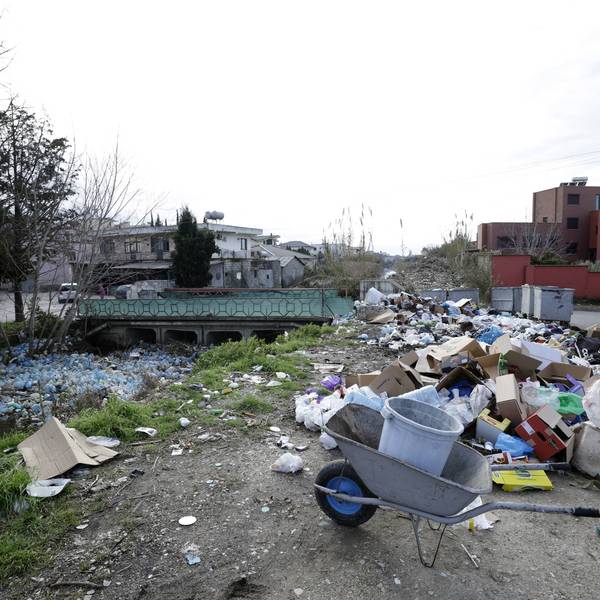A Greenpeace report released Tuesday uses a hypothetical "Smart Supermarket" that has done away with environmentally damaging single-use plastics to outline a possible future in which the world's oceans and communities are free of bags, bottles, packaging, and other harmful plastic pollutants.
"It's time to build smarter supermarkets," Greenpeace plastics campaigner Kate Melges said in a statement. "Globally, we're starting to see examples of retailers moving away from plastics and throwaway packaging, but not at the urgency and scale needed to address this crisis, especially in the U.S. market."
"Without decisive action, plastic production is set to quadruple by 2050. It is crucial, therefore, that retailers and consumer goods companies work together to accelerate a systematic shift away from single-use plastics."
--Greenpeace
"This report should serve as a model for retailers to follow," added Melges, "and shows that it is possible to end our throwaway culture for the sake of our oceans, waterways, and communities."
In Greenpeace's Smart Supermarket (pdf), "single-use plastics are history."
Instead of wasteful plastic packaging, fresh produce in the Smart Supermarket is stored using local and environmentally friendly alternatives. Plastic bags previously used at checkout are replaced by reusable bags and a rental system for customers who forget to bring their own. Plastics used to package to-go meals are replaced by reusable alternatives such as those pioneered by Switzerland.
For online deliveries, the Smart Supermarket deploys "reuse schemes... with every order delivered using sustainable transport that ensures that reverse shipping requirements are carbon neutral."
"It is time to champion smart packaging solutions that can be returned, refilled, and reused, making The Smart Supermarket the new standard in modern retail," the report says.
Greenpeace notes that many of the solutions proposed in the report have already been implemented in major countries around the world, from Singapore to Sweden to Thailand.
"A world free from single-use plastics... is completely viable if retailers, companies, and individuals alike commit to making it a reality," the report states. "The world has woken up to the impact of single-use plastics and packaging on the environment and communities in highly affected countries."
"Yet without decisive action, plastic production is set to quadruple by 2050," says Greenpeace. "It is crucial, therefore, that retailers and consumer goods companies work together to accelerate a systematic shift away from single-use plastics and towards reuse systems."




